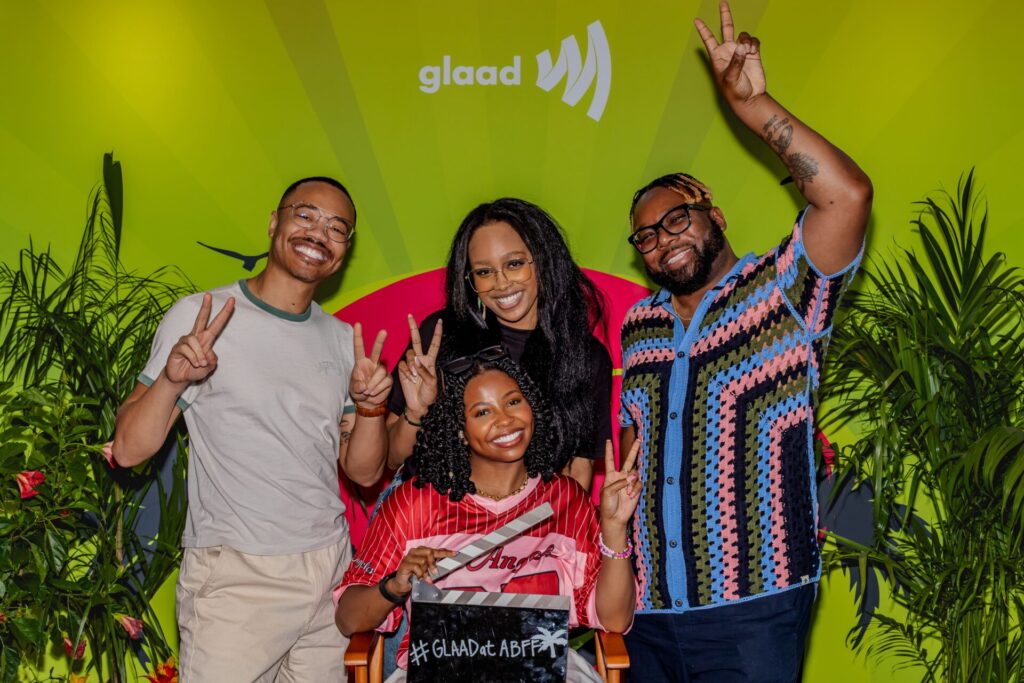This year, GLAAD proudly joined the 2025 American Black Film Festival (ABFF) as an official industry sponsor, deepening its commitment to uplifting Black LGBTQ+ voices and driving forward inclusive representation in media. From June 11th to June 15th in vibrant Miami Beach, GLAAD’s Communities of Color and Media Department curated a powerful series of moments that centered visibility, connection, and creativity at the intersection of Blackness and queerness.
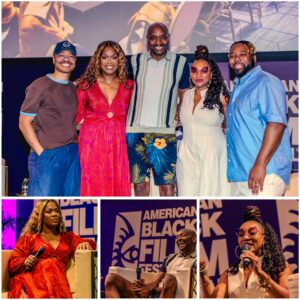
At the heart of GLAAD’s ABFF presence was “Reel & Radiant: A Mixer for Black LGBTQ+ Creatives and Their Allies,” held on Friday, June 13th at the New World Center’s Triust Pavilion. Moderated by journalist and media personality Shar Jossell, the event featured dynamic conversation with acclaimed director Okema T. Moore (Laundry) and groundbreaking creator Patrik-Ian Polk (Noah’s Arc). Together, the panelists reflected on their journeys navigating the film and television industry, the significance of inclusive writers’ rooms, and the personal and political triumphs of bringing Black queer narratives to screen.
View this post on Instagram
The event wasn’t just a discussion. It was a call to action. From practical advice for aspiring creatives to thought-provoking insights about how Black LGBTQ+ stories can shift cultural narratives, Reel & Radiant served as a space of both affirmation and strategy. Attendees walked away inspired to reimagine what’s possible in media — and to push for it.
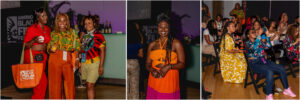
GLAAD’s event coincided with a landmark year of queer inclusion at ABFF and stories made by Black queer filmmakers. Several standout films explored LGBTQ+ themes or featured queer-identifying creatives, including:
“Laundry” – Directed by Reel & Radiant panelist Okema T. Moore, this short film dives into the story of a husband struggling to save his marriage and himself after his son’s tragic accident, until a chance encounter at a laundromat shows him that even in grief, hope and healing can all come out in the wash.
“elle/elle” – featuring Black trans actress L’lerrét Jazelle and directed by Kelley Kali, this gripping short explores identity and marriage as a trans woman comes out to her gay husband.
“Demons” – Created by British-Nigerian queer filmmaker Emmanuel Imani, the film confronts the brutal realities of Afro-Queer life and anti-LGBTQ+ violence in Lagos.
“Graduation Day” – A heartfelt coming-of-age dramedy about a high schooler navigating a love triangle and queer identity in New York City.
“Black Women and Sex” – Directed by Godisamang Khunou, this documentary includes the story of a South African transgender woman, offering a deeply intersectional lens on Black womanhood and queerness. This film also won Best Documentary at this year’s Best of ABFF Awards.
“Love Brooklyn” – Directed by Rachael Abigail Holder, a queer Black woman, the film covers three longtime Brooklynites navigate careers, love, loss, and friendship against the rapidly changing landscape of their beloved city.
“Can You Stand the Rain” – Features Stephen Conrad Moore, an openly same-gender-loving Black actor, in the story of a group of lifelong friends reuniting after the sudden death of their childhood anchor, only to confront buried dreams, hidden tensions, long-held regrets, and the truth about who they’ve become… and who they still might be.
“The Late Night Creep” – Starring queer actor Jake Choi and Lori Lang, a Jamaican-American queer actress, tells the story of an unhappily married man sneaking out of the house to go on a date with his college crush and ends up having the night from hell.
“Love, Joy & Power: Tools for Liberation” – Directed by Daresha Kyi, a queer Black woman, the documentary explores the co-founders of the Black Voters Matter Fund, Cliff Albright and LaTosha Brown, the work they do to empower African American communities especially in the rural south, and the crucial role they played in flipping Georgia from red to blue in the 2020 Presidential election and the 2021 Georgia Senate Runoffs and the numerous threats they faced to do the work.
GLAAD’s impact extended throughout the festival with a vibrant vendor booth experience, where the organization not only RSVP’d attendees to the mixer but also partnered with renowned photographer LaQuann Dawson to offer free, professional portraits that captured the beauty and confidence of Black queer festivalgoers. These portraits stood as both personal mementos and powerful statements of joyful visibility.
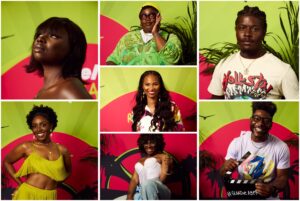
Attendees were also invited to engage with GLAAD’s latest advocacy efforts, including this year’s Studio Responsibility Index (SRI), a comprehensive report analyzing the quantity, quality, and diversity of LGBTQ characters in films released by ten major studios in 2024. Festivalgoers were encouraged to consider how these statistics reflect broader patterns in representation and to envision what truly inclusive storytelling could look like.
Further enriching the experience, GLAAD activated a team of Black queer ambassadors made up of creatives, advocates, and voices from the HIV and entertainment space, who roamed the festival capturing and sharing moments of Black queer joy. As well as begin in-person sessions during the festival to begin conversations on HIV storytelling in entertainment and practical ways the entertainment industry could improve. Their content helped bring visibility to GLAAD’s mission, while offering real-time celebration and community engagement for festival audiences onsite and online.
View this post on Instagram
View this post on Instagram
View this post on Instagram
View this post on Instagram
View this post on Instagram
From vibrant portraits to powerful panels, from community-building to industry-shaping, GLAAD’s presence at the 2025 American Black Film Festival was more than a sponsorship, it was a statement. A celebration. A movement in motion. One reel at a time.
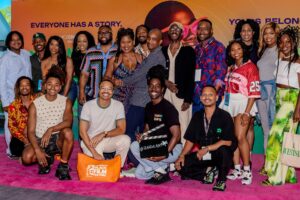
To learn more about GLAAD’s Communities of Color and Media work visit the GLAAD Communities of Color and Media Page and follow @GLAAD on social media.

